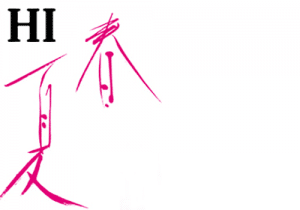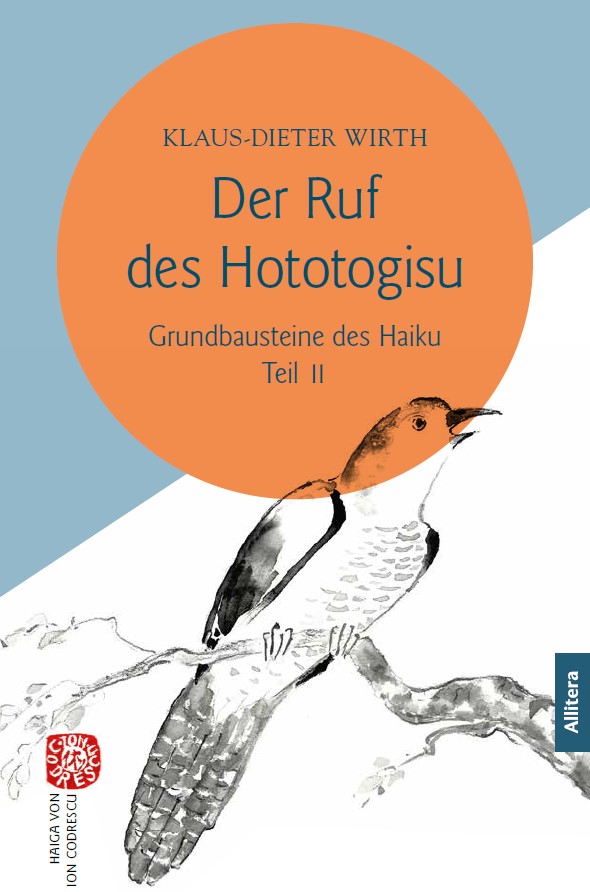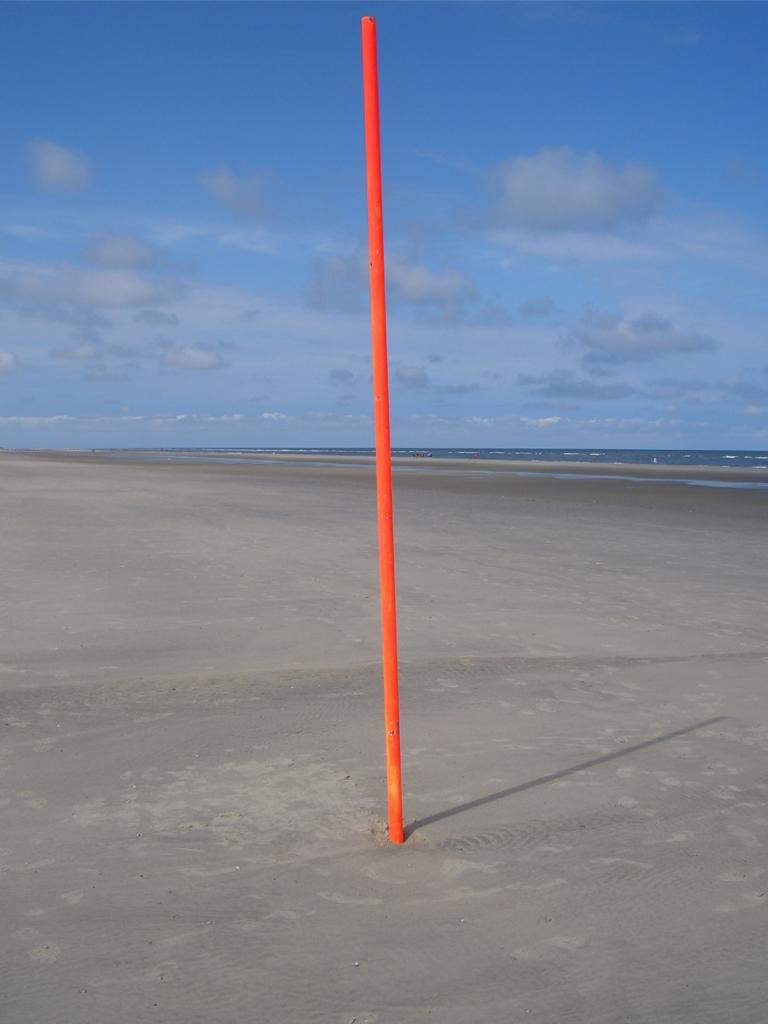Für diese Auswahl wurden insgesamt 226 Haiku von 80 Autoren und 68 Tanka von 29 Autoren eingereicht. Einsendeschluss war der 15. Oktober 2021. Diese Texte wurden vor Beginn der Auswahl von mir anonymisiert.
Jedes Mitglied der DHG hat die Möglichkeit, eine Einsendung zu benennen, die bei Nichtberücksichtigung durch die Jury auf einer eigenen Mitgliederseite veröffentlicht werden soll.
Eingereicht werden können nur bisher unveröffentlichte Texte (gilt auch für Veröffentlichungen in Blogs, Foren, inklusive die Foren auf HALLO HAIKU, sozialen Medien und Werkstätten etc.).
Bitte keine Simultan-Einsendungen!
Bitte alle Haiku/Tanka gesammelt in einem Vorgang in das Online-Formular auf der DHG-Webseite HALLO HAIKU selbst eintragen:
Ansonsten per Mail mit Stichwort Haiku/Tanka-Auswahl 15. 01. 2022 im Betreff bitte an:
auswahlen@deutschehaikugesellschaft.de
Der nächste Einsendeschluss für die Haiku-/Tanka-Auswahl ist der 15. Januar 2022.
Jeder Teilnehmer kann bis zu sechs Texte – drei Haiku und drei Tanka – einreichen.
Mit der Einsendung gibt der Autor/die Autorin das Einverständnis für eine mögliche Veröffentlichung in der Agenda der DHG und auf http://www.zugetextet.com/sowie für eine mögliche Vorstellung auf der Website der Haiku International Association.
Haiku-Auswahl der HTA
Die Jury bestand aus Frank Dietrich, Sylvia Hartmann und Ramona Linke. Die Mitglieder der Auswahlgruppe reichten keine eigenen Texte ein.
Alle ausgewählten Texte – 30 Haiku von 23 Autoren – werden in alphabetischer Reihenfolge der Autorennamen veröffentlicht. Es werden maximal zwei Haiku pro Autor aufgenommen.
„Ein Haiku, das mich besonders anspricht“ – unter diesem Motto besteht für jedes Jurymitglied die Möglichkeit, bis zu drei Texte auszusuchen (noch anonymisiert), hier vorzustellen und zu kommentieren.
Da die Jury sich aus wechselnden Teilnehmern zusammensetzen soll, möchte ich an dieser Stelle ganz herzlich alle interessierten DHG-Mitglieder einladen, als Jurymitglied bei kommenden Auswahl-Runden mitzuwirken.
Peter Rudolf
Ein Haiku, das mich besonders anspricht
aus Nachbarsgarten
heute ein freundliches Nicken
SonnenblumeElisabeth Weber-Strobel
Obwohl ich weiß, dass für ein Haiku der Bezug zur Natur wichtig ist, mag ich Haiku, die unsere menschliche Umwelt mit einbeziehen, vielleicht weil ich mein Leben lang in der Stadt gelebt habe und die Natur da manchmal ganz schön weit weg ist. Dieses Haiku bringt beide Themenbereiche auf gelungene Weise miteinander in Verbindung.
Viele Städter legen sich, wenn sie keinen Garten am Haus haben, aus Sehnsucht nach der Natur einen Kleingarten zu. In der Zeit der Corona-Pandemie ist die Nachfrage danach noch einmal deutlich gestiegen. Manche genießen nicht nur den Kontakt zur Natur, sondern auch die menschlichen Kontakte in solch einer Kleingartensiedlung. Aber es gibt auch erbitterte Streitigkeiten zwischen Gartennachbarn, um Zweige, die über den Zaun wachsen, Lärmbelästigung und unterschiedliche Vorstellungen von Ordnung. Die können so weit gehen, dass man nicht mehr miteinander spricht und sich nicht einmal mehr grüßt.
Vielleicht spricht das Haiku aus einer solchen Erfahrung heraus. Die Sonnenblume, für mich ohnehin eine Blume mit einer positiven Ausstrahlung, schert sich aber nicht um menschliche Sympathien oder Antipathien. Ihr Nicken gilt beiden, dem, der sie gepflanzt hat, genauso wie seinem Nachbarn. Ihre freundliche Ausstrahlung über den Zaun hinweg lässt hoffen, dass über der gemeinsamen Freude an der Natur hier und da verstummte Gespräche zwischen Nachbarn wieder aufleben.
Ausgesucht und kommentiert von Sylvia Hartmann
Die Auswahl
erster Kuss
nur das Mondlicht
zwischen unsMona Bedi
Horchen auf den Wind:
die Melodie des Meeres
in Föhrenwipfeln.Thomas Berger
Grabbesuch …
ihr Blick lehnt sich
an michClaudia Brefeld
regennasses Fenster
mein Gesicht starrt
durch mich hindurchClaudia Brefeld
Eiszapfen
immer dünner und dünner
unsere FreundschaftenMaya Daneva
Kirchentür schließt sich …
das Licht der Kerze
richtet sich wieder aufMaya Daneva
Nächtlicher Stromausfall –
aufs Neue
die Sterne bestaunen.Reinhard Dellbrügge
Schreibtisch im Kloster.
Vor einer weißen Wand summt
die Stille.Volker Friebel
Feuer im Kamin
hinter dem Vorhang die Welt
vergessenWolfgang Gründer
wir müssen reden
ich schließe das Fenster
es wird stillWolfgang Gründer
herbstnacht –
das rascheln
der sterne …Ruth Guggenmos-Walter
frühherbst
die amsel moduliert
unseren grundtonMatthias Gysel
Schneesturm –
der träge Pulsschlag
des PerpendikelsKlaus Kornexl
Brachland –
deine Disteln
mein MohnUdo Mansfield
Museumsbesuch
bewohne eine Weile
Klees Villa RRuth Karoline Mieger
Nachsaison
die Menschen am Strand
grüßen sich wiederEleonore Nickolay
ein altes Handy
Kontakte,
die nur Namen sindKamil Plich
Prasselnder Regen
eine einzelne Amsel
stört sich nicht daran.Maximilian Pohl
Das ewige Eis
der Alpengletscher –
in die Zeit gefallenSabina Ptascheck
Herrenausstatter –
im Windfang
ein leerer SchlafsackSabina Ptascheck
Winteranfang
Deine letzten Worte
glühen noch immerRenate Maria Riehemann
Herbstblues
ein Specht klopft
den TaktEvelin Schmidt
im Wald verschwinden
unter dem Gewicht des Schnees
die BrombeerrankenMarie-Luise Schulze Frenking
die kleine Blume
am Fuße des Bergfrieds
wie sie leuchtetAngelica Seithe
Regentag –
im Vorbeigehen
dein LächelnAngelica Seithe
raureif
von den linden löst sich
das lichtHelga Stania
aus Nachbarsgarten
heute ein freundliches Nicken
SonnenblumeElisabeth Weber-Strobel
drei Tage vermisst
stolziert sie an mir vorbei
die alte KätzinElisabeth Weber-Strobel
ein Fisch
bringt den Mond
ins WankenFriedrich Winzer
Sonntag
auch der Nebel
bleibt liegenFriedrich Winzer
Tanka-Auswahl der HTA
Silvia Kempen und Martin Thomas wählten 8 Tanka von 7 Autoren aus. Es werden maximal zwei Tanka pro Autor aufgenommen.
„Ein Tanka, das mich besonders anspricht“ – unter diesem Motto werden Texte vorgestellt und kommentiert.
Ein Tanka, das mich besonders anspricht
du fragst mich
nach dem Sinn des Lebens
doch schau
am Ufer des Bachlaufs
SumpfdotterblumenChristof Blumentrath
Was ist der Sinn des Lebens? Diese Frage haben sich seit Jahrhunderten schon unzählige Menschen gestellt. Es gibt massenhaft Literatur zu diesem Thema mit vielen verschiedenen Antworten oder „Nichtantworten“. Oft sehr kompliziert, aber manchmal auch sehr einfach.
Dazu möchte ich Peter Ustinov zitieren:
„Sinn des Lebens: etwas das keiner genau weiß. Jedenfalls hat es wenig Sinn, der reichste Mann auf dem Friedhof zu sein.“
Es scheint wohl einfacher zu beantworten zu sein, was keinen Sinn macht. Und dennoch ist diese Antwort für manche Menschen sehr einfach, wie sich an den beiden letzten Zeilen des Tankas zeigt: „am Ufer des Bachlaufs / Sumpfdotterblumen“. Für mich drücken diese Zeilen aus: Sich an den kleinen Dingen erfreuen zu können, bei ihrem Anblick ein Glücksgefühl zu erleben. Doch ist das nicht für jeden Menschen so leicht, manche tun sich schwer damit, hinterfragen alles, auch oder gerade die einfachen Antworten.
Gleichzeitig erfährt der Leser durch die beiden letzten Zeilen den Ort, an dem sich die zwei, die offenbar spazieren gehen, befinden. Dass es sich um zwei Menschen, um einen Fragenden und einen Antwortenden handelt, ist schon am Anfang des Tankas ersichtlich.
Für mich ist klar, dass die Sumpfdotterblumen blühen. Sie sind so viel auffälliger mit ihrer leuchtend gelben Farbe. Sumpfdotterblumen sind Frühblüher, blühen also im Frühling, eine Zeit neuen Wachstums und neuer Anfänge, der Jahresabschnitt, in dem alles zu neuem Leben zu erwachen scheint. Vielleicht auch eine Zeit, in der man nach dem Sinn des Lebens fragt, um es neu zu gestalten, einen neuen Anfang zu machen.
Ausgesucht und kommentiert von Silvia Kempen
Dein Blick aufs Meer
als tauche irgendwo die Mastspitze
eines Textes auf –
doch die Untiefen verschweigen
ihre blauen TräumeAngelica Seithe
Manchmal wird man von einem Gedicht magisch angezogen, ohne genau zu wissen, warum. So erging es mir bei diesem Tanka, das mich zu gleichen Teilen faszinierte, wie es mich ratlos zurückließ. Nach und nach verwandelte ich mich selbst in ein schauendes Subjekt, das voll und ganz in Kontemplation versinkt. In meinem Fall war es jedoch nicht das Meer, das sich vor mir ausbreitete, sondern ein mystisches Wortgeflecht, das ebenso groß und ungreifbar schien.
Den Ausgangspunkt dieses Fünfzeilers bildet ein „Blick aufs Meer“. Dieser Blick, der vom Aussagesubjekt beim Gegenüber beobachtet wird, ist jedoch kein banaler oder flüchtiger. Im Gegenteil, das Gegenüber scheint förmlich auf der Suche nach etwas zu sein, so intensiv richtet es die Augen auf die blaue Weite, die sich vor ihm befindet. Hier überrascht das Gedicht zum ersten Mal, da es sich bei der für den Vergleich herangezogenen „Mastspitze“ nicht um die eines gewöhnlichen Bootes oder Schiffes handelt, sondern um die „eines Textes“.
In der zweiten Hälfte des Gedichts wird die gestiftete Verwirrung weiter geschürt. So wird das Meer nicht nur zum Agens der Handlung, sondern verwehrt dem Suchenden aus der ersten Hälfte des Textes auch noch jegliche Antworten auf die potenziell vorhandenen Fragen, indem es seine „blauen Träume“ tief unter der Oberfläche verbirgt. Selten habe ich eine derart abstrakte Sprache in einem modernen deutschen Tanka gefunden, und selten hatte ich am Ende eines Gedichts so viele Fragezeichen über dem Kopf wie in diesem Fall.
Der ein oder andere Leser mag sich daher sicher fragen, ob es sich überhaupt um ein Tanka handelt. Ich persönlich sehe in dieser Gattungszuordnung kein Problem. So möchte sich das Gedicht aufgrund der gegebenen Form unweigerlich als solches verstanden wissen. Sprachlich findet sich durch die Einbindung bestimmter semantisch miteinander verbundener Assoziationswörter (engo 縁語) wie „Meer“, „blau“ und „Untiefen“, die auf verschiedene Zeilen verteilt werden, darüber hinaus sogar ein Element aus der traditionellen Waka-Lyrik. Und auch auf thematischer Ebene – es geht im Grunde um die Suche eines Menschen nach Halt und Orientierung – ist das Gedicht genau da, wo es sein soll.
Ob der Grad an Abstraktheit und Offenheit, welcher bewusst provoziert wird, am Ende noch akzeptabel ist, muss jeder Leser für sich selbst entscheiden. Ich selbst hatte jedenfalls große Freude beim Lesen und musste unweigerlich an Schillers Ausführungen zum Erhabenen denken, in denen er den Anblick des Ozeans als Auslöser beschreibt, um den menschlichen Geist „der engen Sphäre des Wirklichen und der drückenden Gefangenschaft des physischen Lebens“ zu entreißen. Genau dieselbe transzendierende Wirkung hatte das vorliegende Gedicht auf mich, weswegen es mich besonders ansprach.
Ausgesucht und kommentiert von Martin Thomas
Die Auswahl
du und ich
und der Klang des langsam
fallenden Schnees
die Stille zwischen uns
spricht BändeMona Bedi
du fragst mich
nach dem Sinn des Lebens
doch schau
am Ufer des Bachlaufs
SumpfdotterblumenChristof Blumentrath
Neunzigster –
sie spielt ihre letzte Karte
wieder ohne Mau-Maudie Blätter des Weihnachtssterns
zittern in der HeizungsluftTaiki Haijin
Herbstmorgen –
nach dem Abschied
wieder allein
streicht er über ihr welk
gewordenes NachthemdUdo Mansfield
vor der Beerdigung
noch einmal innehalten
vor dem Elternhaus
hinter der Fassade
die guten alten ZeitenWolfgang Rödig
Dein Blick aufs Meer
als tauche irgendwo die Mastspitze
eines Textes auf –
doch die Untiefen verschweigen
ihre blauen TräumeAngelica Seithe
Jahr für Jahr
den Garten gepflegt
und jetzt im Alter
wird er Woche für Woche
selbstständigerFriedrich Winzer
pfeilschnell
mit bester Haltungsnote
eingetaucht
in die glitzernde Sonne
der EisvogelFriedrich Winzer
Sonderbeitrag von René Possél
René Possél hat aus allen anonymisierten Einsendungen ein Haiku ausgesucht, das ihn besonders anspricht.
raureif
von den linden löst sich
das lichtHelga Stania
Bei dem Haiku haben es mir Sprachmelodie und -stil angetan. Gleich zwei Alliterationen bestimmen den Klang: das „raureif“ in der ersten Zeile und die gleich anlautenden Wörter der zweiten und dritten Zeile: „linden – löst – licht“.
Das Haiku schwelgt aber nicht nur im Akustischen, sondern auch im Visuellen. Da wird das Bild von mit Raureif überzogenen Bäumen = Linden beschworen. Dynamik und Spannung werden in der zweiten Zeile erzeugt: Was löst sich von den mit Eis überzogenen Linden? Indirekt wird hier auch die winterliche Jahreszeit deutlich gemacht.
Die überraschende „Auflösung“ der Spannung lautet: Es ist „das Licht“, das mit dem Tauen des Reifs von den Linden fällt.
Wer mag, kann in diesem Bild auch Tieferes, Dialektisches, sogar „Zeit“ erkennen: Kälte und Eis, die das Licht in den gefrorenen Wassertropfen festhalten; Wärme der Sonne und des Tages, die den Raureif langsam schmelzen, damit aber gleichzeitig das Licht „vertropfen“ lässt … Ein Haiku kalter Schönheit, das laut gesprochen und aufmerksam betrachtet sein will.







